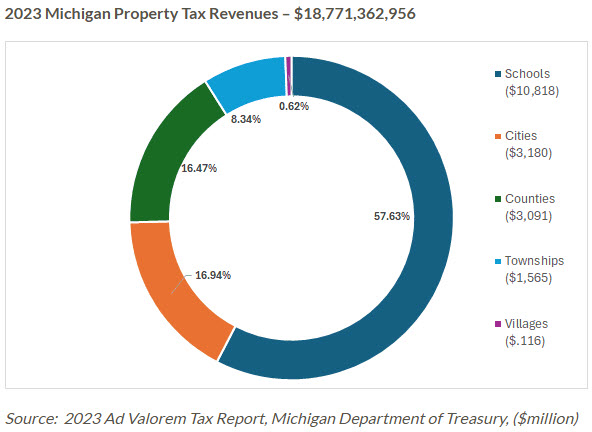This year would be a great time for Michigan to tackle reform of local government finance, says the nonpartisan Citizens Research Council of Michigan in a new study. The report, […]


This year would be a great time for Michigan to tackle reform of local government finance, says the nonpartisan Citizens Research Council of Michigan in a new study. The report, […]
MAC accepting applications for internal policy committees County commissioners are encouraged to apply now for MAC’s five standing committees for 2025. Applications are due by Jan. 31, 2025. To apply, […]
Looking to build on recent success in Lansing capped by the enactment of 4-year terms for county commissioners in 2021, MAC expanded its Governmental Affairs Team today with the addition […]
MAC has created this area to collect and share information on American Rescue Plan funds that related to Michigan’s 83 counties. LATEST: SLFRF Project and Expenditure Report User Guide (July […]
Allegan County Commissioner Jim Storey and Dickinson County’s Joe Stevens testified Thursday (April 29) in favor of four-year terms for county commissioners before the Senate Local Government Committee. The duo […]
FY20 budget deal uses federal COVID aid to compensate counties for revenue sharing cuts Legislative leaders and the Governor’s Office reached final agreement this week on a plan to balance […]
NACo applauds county leaders’ help on federal aid bill Much still must be clarified about the latest federal relief package awaiting House action before its full effects on counties are […]
On March 3, MAC led delegations of county commissioners and other leaders on visits to Michigan’s members of Congress on Capitol Hill. MAC delivered a list of federal priorities to […]
The 2020 MAC Membership Directory is the ultimate guide to county elected officials across Michigan. Each of Michigan’s 83 counties has a full listing with names, addresses, phone numbers and […]
DHHS budget receives mixed response in committee session As Appropriations subcommittees began work this week on the FY21 budget, Department of Health and Human Services Director Robert Gordon presented on […]